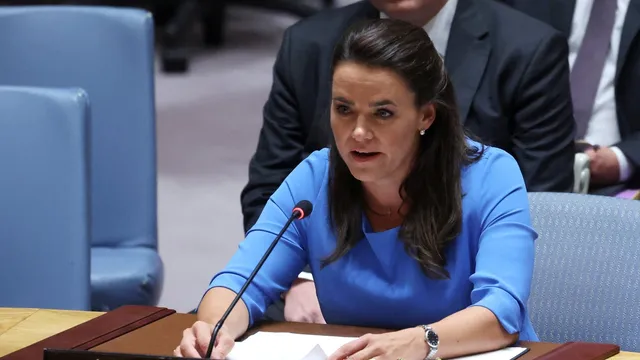Hungary’s first female president, Katalin Novak, tendered her resignation on Saturday amidst mounting pressure following her controversial decision to pardon a man convicted of aiding in the cover-up of sexual abuse in a children’s home. Novak, 46, a prominent figure in Prime Minister Viktor Orban’s conservative circle and the youngest individual to assume the presidency, stepped down merely a week after her presidential pardon sparked public outcry.
The revelation triggered widespread condemnation and calls for accountability from the opposition, leading to the resignation of former Justice Minister Judit Varga, a rising star within Orban’s ruling Fidesz party, who also endorsed the controversial pardon.
Addressing the nation on state television, Novak acknowledged her error in judgment, stating, “I made a mistake… Today marks the end of my tenure as president.” She expressed regret over her decision to grant the pardon last April, emphasizing that it was made under the belief that the convict did not exploit the vulnerability of the children under his supervision. However, she conceded that the lack of justification for the pardon had cast doubt on the nation’s policy of zero tolerance towards paedophilia.
The scandal dealt a blow to Orban’s administration, which has been in power since 2010, especially as Hungary faces European Parliament elections amid economic challenges. Orban’s staunch stance on protecting children from what he perceives as LGBTQ activism in schools has frequently clashed with the European Commission.
Novak’s tenure as president saw her issue pardons, including one to a group of 25 individuals during Pope Francis’s visit, among whom was Endre K., a psychologist implicated in the cover-up of sexual abuse at a children’s home near Budapest. His release due to the pardon has raised concerns about his potential re-entry into the profession and the safety of children under his care, as voiced by Hungarian lawyer András Gál.
In response to mounting pressure, Orban proposed a constitutional amendment stripping the president of the authority to pardon crimes against children, underscoring his commitment to a tough stance against paedophilia.
The public outcry and protests demanding accountability culminated in Novak and Varga’s resignations. Varga, who was slated to lead Fidesz’s electoral list, announced her withdrawal from public life, taking responsibility for her role in the controversy. Fidesz’s parliamentary group leader, Mate Kocsis, lauded their decisions as responsible, signaling the party’s acknowledgment of the gravity of the situation.
As Hungary navigates the aftermath of this scandal, public opinion remains divided, with Fidesz maintaining a lead in opinion polls ahead of the upcoming elections, albeit with a significant portion of voters undecided.















